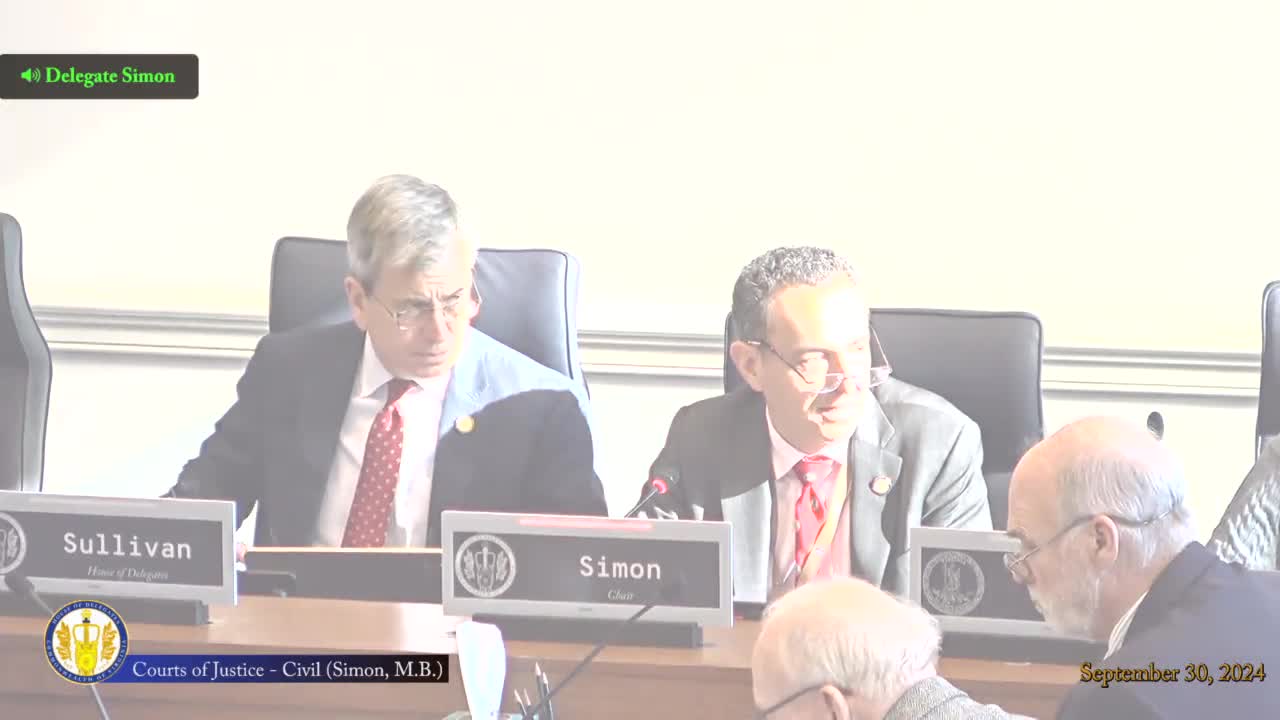Subcommittee advances bill letting judges waive 72-hour sheriff notice after writ of possession in squatter cases
Get AI-powered insights, summaries, and transcripts
Subscribe
Summary
HB 1584, patroned by Delegate Mark Ballard, would allow a court to waive the 72-hour sheriff notice that now follows a writ of possession in unlawful detainer cases where no rental agreement existed; a House subcommittee voted 6-2 to report the bill to the full committee.
HB 1584, patroned by Delegate Mark Ballard, would allow a court to waive the 72-hour notice by the sheriff that currently follows a writ of possession in unlawful detainer cases involving people who never entered into a rental agreement. The House subcommittee advanced the bill to the full committee on a 6-2 vote.
The bill targets so-called squatter scenarios, Delegate Ballard told the subcommittee, saying the measure "isn't trying to disrupt appellate rights" but instead would "eliminate the situation where once you are granted that writ of possession, you then have to wait 72 hours to actually get back into the single-family dwelling." Ballard said the change applies only when there has never been a rental agreement, oral or written.
Proponents described the measure as a narrow fix to speed possession where a homeowner proves there was never a tenancy. "It's dealing with a situation where there has never been an agreement," Ballard said, adding that the bill leaves the court's 10-day appeal period for unlawful detainer judgments intact.
Opponents and some legal-aid advocates told the subcommittee the bill may not produce the expedited effect supporters described. A representative of the Virginia Poverty Law Center said removing the 72-hour sheriff notice would not necessarily advance removal because an existing 10-day appeal or administrative period would still block execution of an eviction. "Even if you eliminate that 72-hour notice from the sheriff, I believe there would still be that 10-day waiting period," the center's representative said.
Members raised other practical concerns: several delegates asked whether defendants who are unrepresented or of limited means would lose an effective opportunity to present evidence of an oral agreement before the sheriff acts, and whether the language should tell courts what circumstances justify waiving the notice. Counsel and the bill patron said the bill does not change the hearing or evidence rules and that waiving the 72-hour notice would remain at the judge's discretion.
Supporters and critics also debated timing: realtors and others explained how, in practice, a plaintiff can combine the 10-day appeals period and the sheriff notice to create a maximum delay of about 13 days, and that sheriff cooperation (and the judge's direction) affects how quickly a writ is executed. Delegate Ballard and counsel reiterated that the bill is limited to post-judgment timing and not to the underlying evidentiary process.
The subcommittee voted to report HB 1584 to the full committee with a 6-2 roll call. The action record in committee lists the motion to report; the tally reported by the clerk was 6 yes, 2 no.
Votes at a glance HB 1584 — Author: Delegate Ballard — Motion to report passed by subcommittee: 6 yes, 2 no. Outcome: advanced to full committee.
Code and process cited The discussion referenced Code of Virginia § 8.01-126 (unlawful detainer and writs of possession) and § 8.01-129 (timeframes and sheriff execution). Supporters and advocates repeatedly noted that the bill does not change the 10-day appeals period tied to the unlawful detainer process.
What happens next HB 1584 was advanced to the full committee for further consideration. The subcommittee record shows proponents and legal-aid representatives asked for clarifying language and for consultation with stakeholders before floor consideration.
